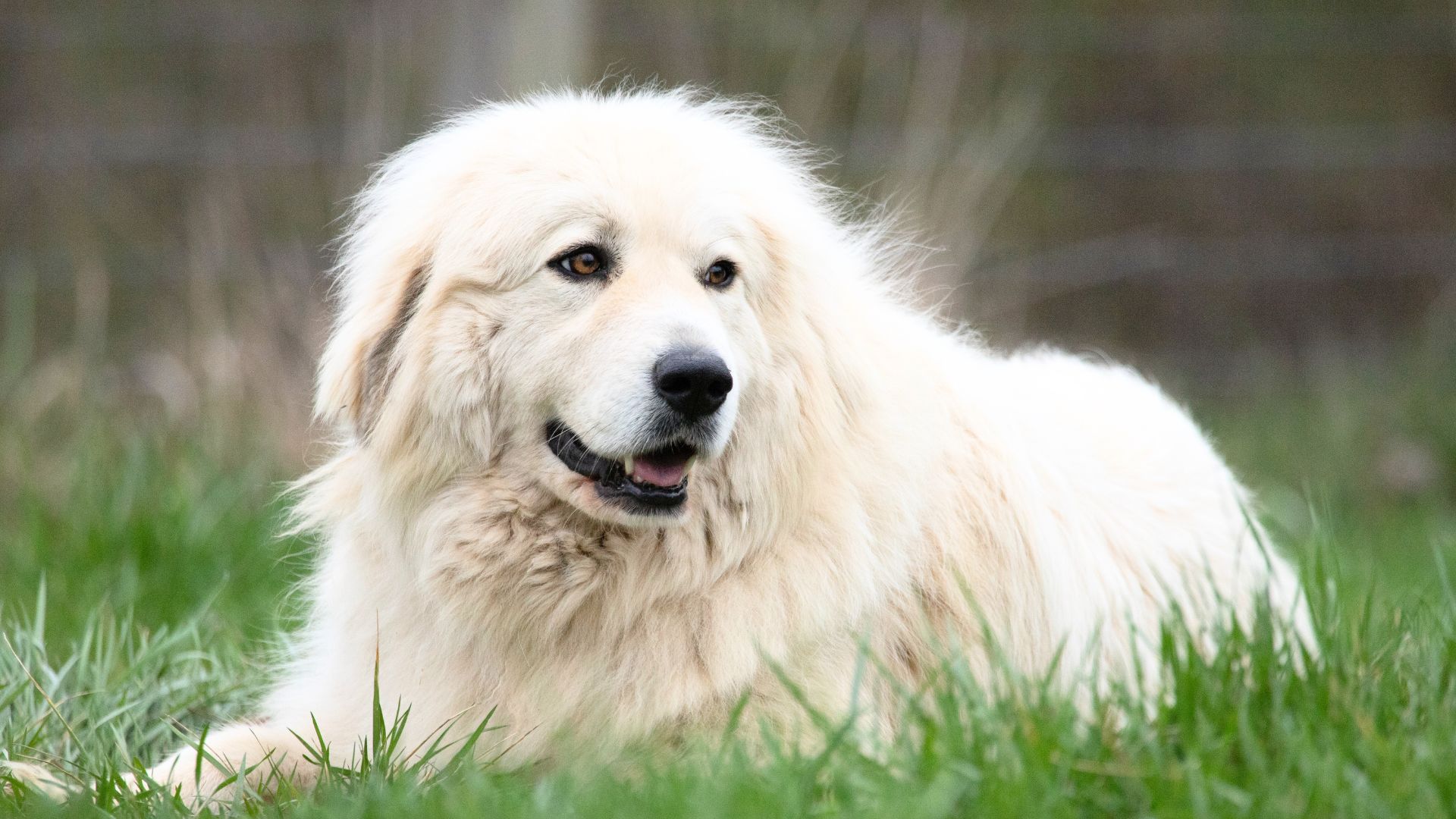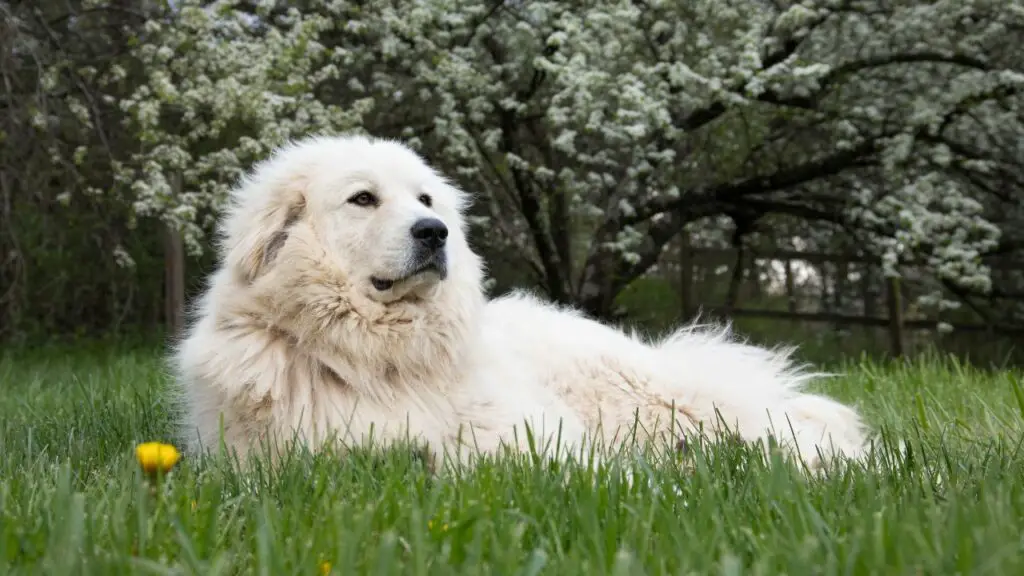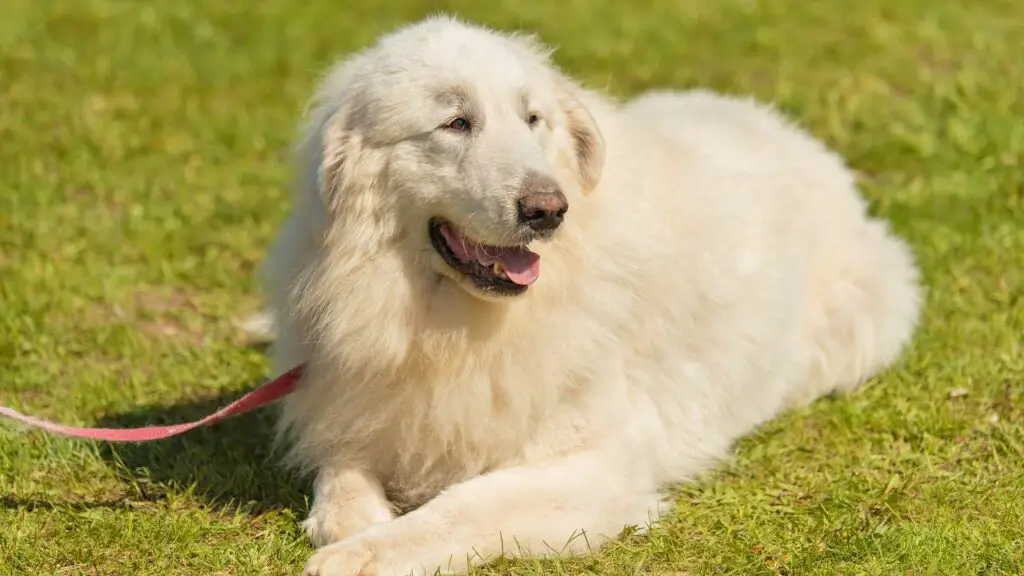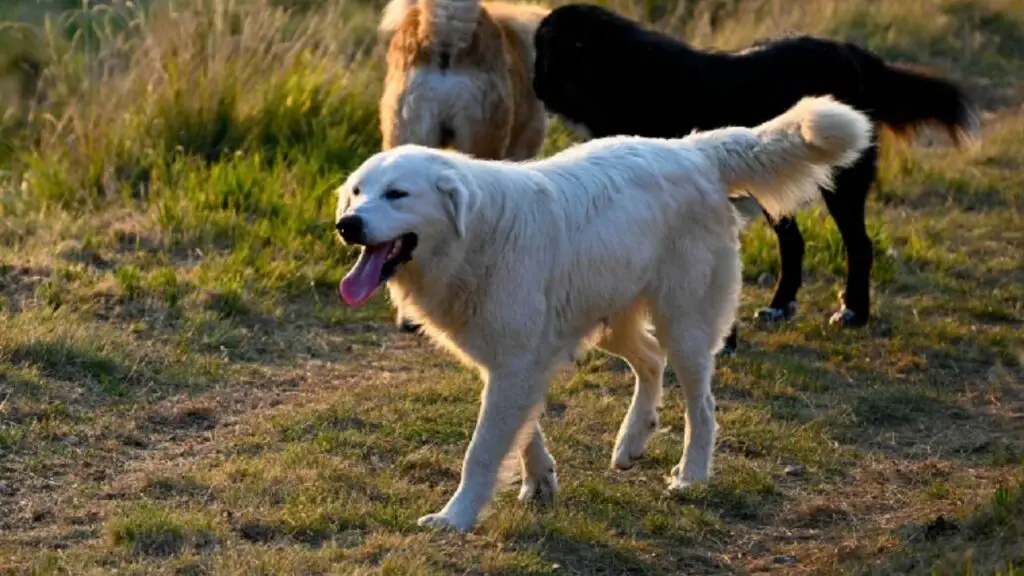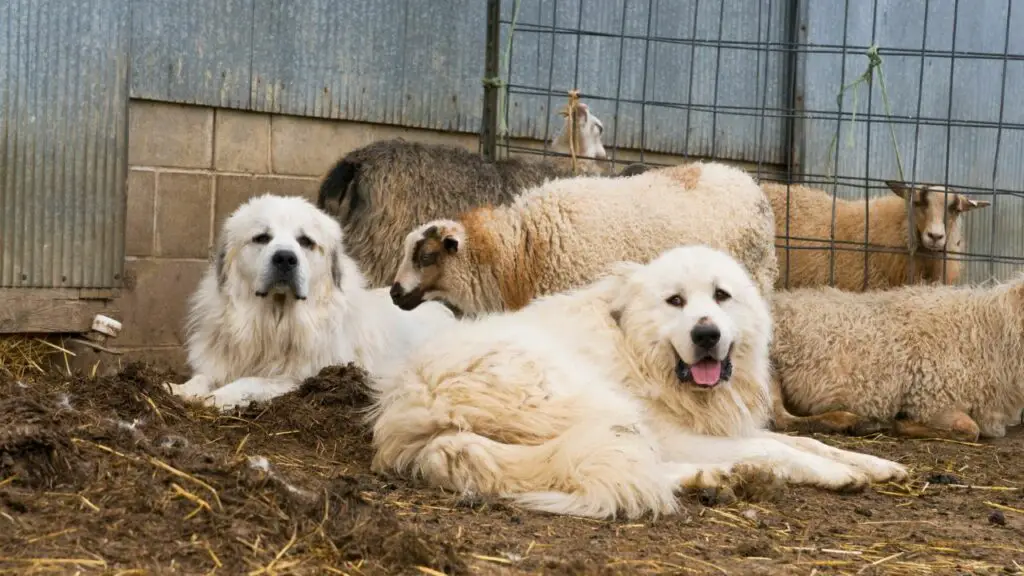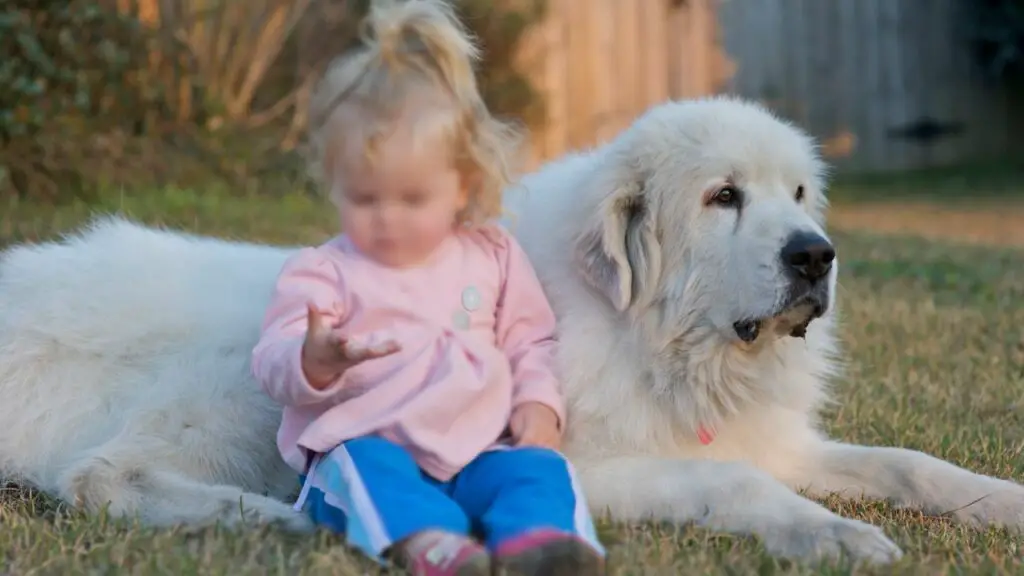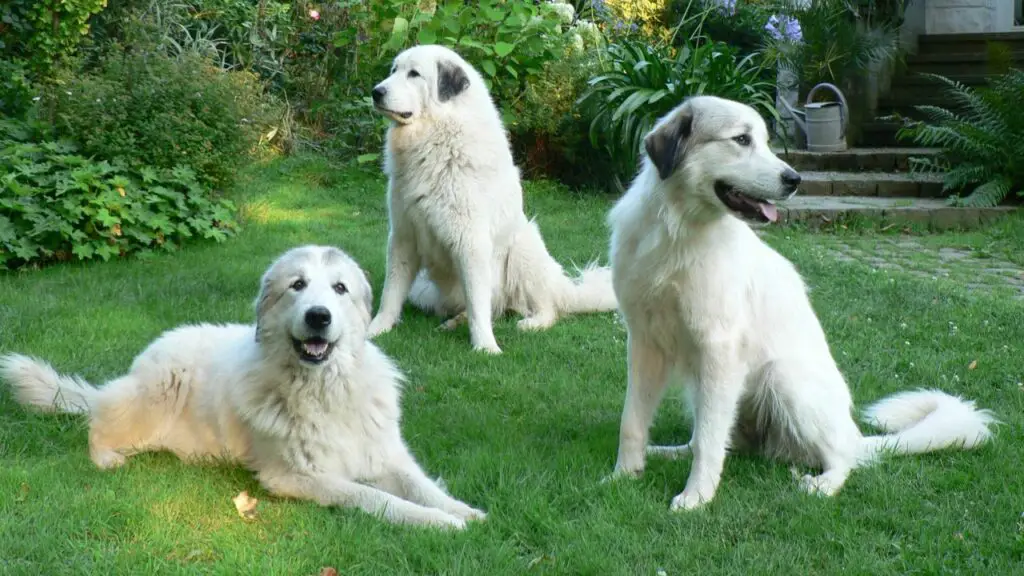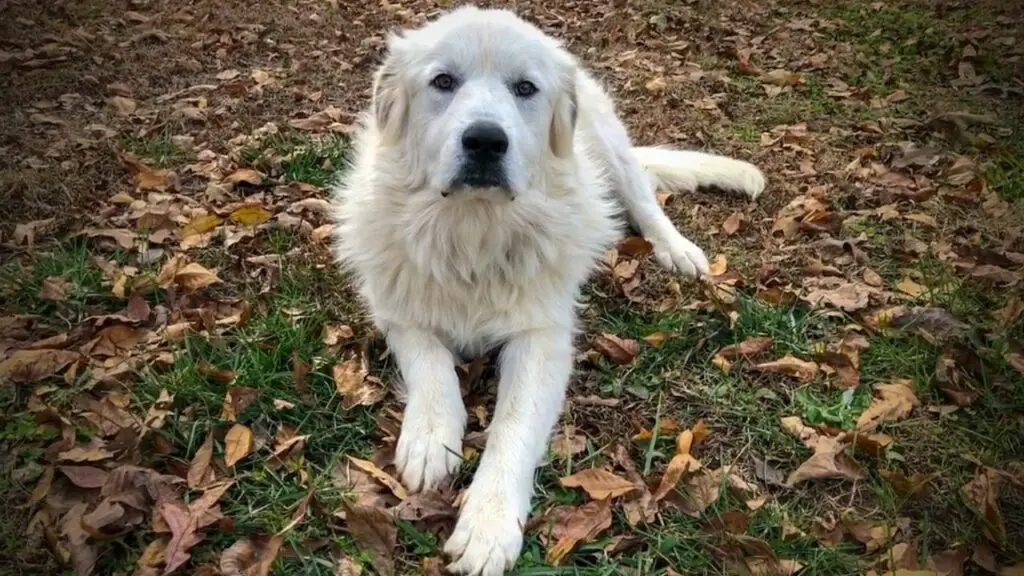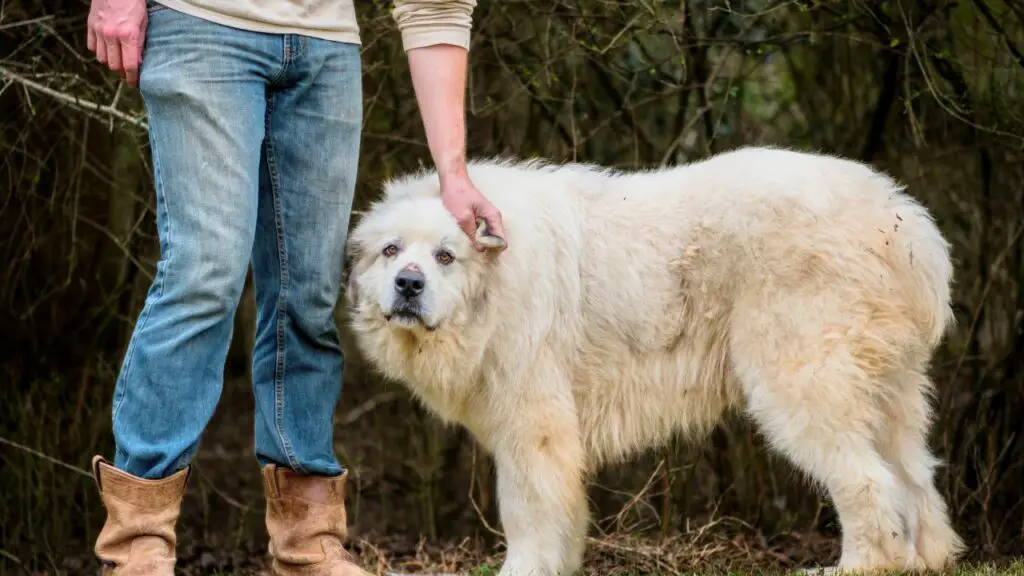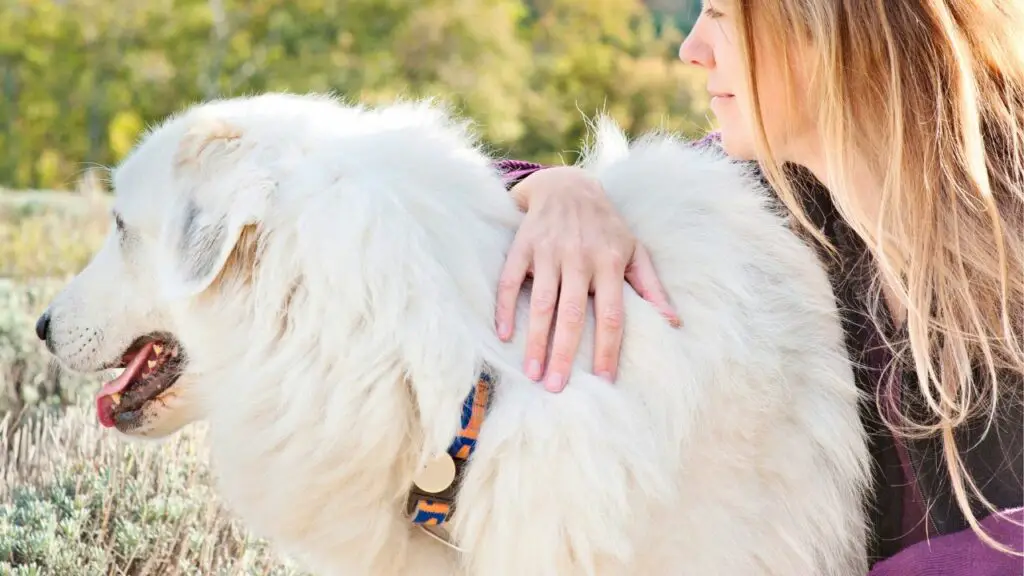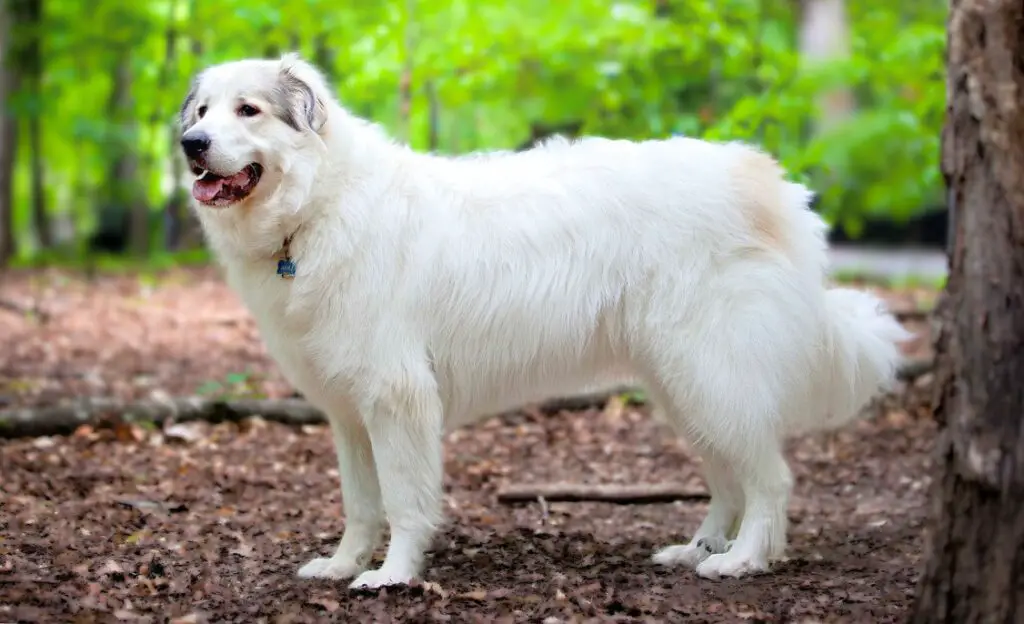Considering a Great Pyrenees? These majestic guardians are renowned for their gentle nature with family and unwavering devotion to protecting their flock. However, that impressive size and protective instinct come with considerations. Explore the pros and cons of welcoming a Great Pyrenees into your life, from their cuddly affection and imposing presence as deterrents to their independent streak and demanding grooming needs. This guide will equip you with the knowledge you need to decide if this magnificent breed is the right fit for your home.
The Great Pyrenees is a magnificent, large working dog breed with an equally big heart. These dogs are admired for their hard-working nature and sweet temperament, as well as their massive, muscular build. With a lineage dating back to the 18th century B.C., the Great Pyrenees evolved from mountain sheepdogs and were developed by the Basque people to guard sheep and homes.
Originating from the Pyrenees Mountains between Spain and France, these dog breeds have thick, white coat that provides perfect camouflage in snowy landscapes, helping them protect sheep from predators like wolves.
Often weighing over 100 pounds, Great Pyrenees are incredibly strong and fast. Despite their power, they are typically calm and gentle at home, especially around the people they love.
Having a Great Pyrenees as a family pet can be a truly rewarding experience. However, it’s important to weigh the pros and cons before bringing one into your home. Here are some key points to consider when owning a Great Pyrenees.
Great Pyrenees Pros and Cons
While the Great Pyrenees is still often used as a working dog, many families are now choosing them as pets and companions. They can be great family dogs but are best for experienced dog owners due to their size and temperament.
In this article, we will cover everything you need to know about the Great Pyrenees breed, including the benefits and potential drawbacks of owning these beautiful dogs.
Pros of Great Pyrenees
1. Calm and Loving
The Great Pyrenees is a calm and serious dog, very devoted to its family. These dogs are usually trustworthy, affectionate, and gentle, but they will protect their family and home if necessary.
Courageous and devoted to his family, he’s the best friend anyone could ask for. He’s also a warm blanket and a comforting presence at night. He loves being a therapy dog. Intelligent and independent, he is used to working on his own and figuring things out by himself.
HillsPet notes that they make great companions if you live in a suburban or rural area and have a peaceful lifestyle. They enjoy quiet time at home and like a predictable, orderly routine.
2. Adaptable to Indoor Living
Though large, Great Pyrenees enjoy lounging on dog beds or comfy furniture and aren’t usually hyperactive indoors. They aren’t suited for apartments because they can be noisy, barking at any sight, sound, or smell they notice. However, they don’t need a big home or yard to be happy. What they do need is a job; without one, they may become destructive.
3. Needs Moderate Exercise
As working dogs, Great Pyrenees need a fair amount of daily exercise, even though they aren’t super high-energy. They can handle up to two hours of activity a day. Plan to walk your Pyr for at least 30 to 40 minutes daily, but they won’t make good running buddies.
While they can be walked on a leash, they tend to wander when off-leash. They do best with access to a large, well-fenced yard where they can roam and patrol.
Be careful to avoid very hot temperatures during exercise, as they can overheat easily. They are much better suited to exercising in cold weather.
4. Loyal and Protective
The Great Pyrenees, originally bred to protect livestock and homes, is an excellent watchdog. They will alert owners to the approach of strangers. While not aggressive by nature, they are driven to protect their family from threats.
If you have horses, sheep, chickens, or other farm animals needing protection, the Great Pyrenees is an excellent choice. These dogs have a natural ability to guard and show incredible loyalty.
For farm owners, this four-legged protector might be the best investment you didn’t know you needed. However, be ready for some training sessions to teach your Great Pyrenees the difference between friend and foe.
6. Excellent Family Dog
The Great Pyrenees is known for its patient and affectionate temperament. They are generally friendly and well-suited for family life. According to PetMD, Great Pyrenees are good family dogs, and their calm nature makes them suitable for homes with children who know how to interact with dogs properly. However, their large size means they might accidentally bump into and knock over small children.
As former livestock guardians, Great Pyrenees are used to being around various farm animals, so they usually get along well with other dogs and even cats in the home.
7. Rugged and Hardy
The Great Pyrenees is a stunning breed, recognized for its large, strong build and beautiful white coat. With a noble face and deep, expressive eyes surrounded by fluffy fur, they have a calm and protective presence. If you’re drawn to impressive size and appearance, the Great Pyrenees is truly eye-catching. Weighing up to 160 pounds, they come with a thick, white coat.
Though they don’t roar, their sheer size can scare off unwelcome visitors. This means they need plenty of space to relax and live comfortably.
Cons of a Great Pyrenees
1. Training can be Difficult
Great Pyrenees are calm and intelligent dogs, but they can be hard to train because they were bred to think independently and don’t like being told what to do. They tend to assert dominance, so they need a strong leader to avoid becoming pushy and poorly behaved. They can be challenging for first-time dog owners who aren’t ready to put in the effort for proper training.
Orvis states that establish yourself as the pack leader early in their training. They can get bored easily, so make training sessions fun and varied. Focus on socializing them with people and other animals, teaching good leash behavior, and ensuring they respond well to emergency recalls.
2. Prone to Warning Barks, Especially at Night
This big dog is known for its constant barking. According to WebMD, this habit comes from their background as livestock guardians, so they bark at any unexpected noise. They will bark even more at night due to their keen senses of sight and sound, which allow them to detect coyotes, deer, wolves, raccoons, bears, and possums—all of which they feel the need to guard against.
They might bark when someone walks by the house, when a bird lands on the roof, or even at crickets at night. Some Great Pyrenees bark more than others, so the amount of barking will vary for each owner.
3. Can be Destructive
The Great Pyrenees is a smart dog and can get bored easily. To prevent destructive behavior, provide plenty of toys and activities. He loves being with his family and can cause damage if left alone for too long. Training can be challenging, but starting early and using kindness and consistency can make it easier.
4. Require a lot of Space
The Great Pyrenees is majestic, largely due to its impressive size, but let’s be honest: this dog needs a lot of space. Imagine your living room; this breed doesn’t just lounge, they take over the entire couch. Car trips can also become a challenge with such a large furry passenger that doesn’t fit easily into small spaces.
If you have limited space or a smaller car, having a Great Pyrenees will make you rethink your space arrangements.
5. Have Selective Friendliness
One moment, your Great Pyrenees are doting on your family pets; the next, they’re treating the neighbor’s pet cat like an enemy. This breed can be very selective about which animals they accept, often showing a strong bias against those outside their immediate family. This can lead to conflicts.
Early socialization can help, but their protective nature is deeply ingrained. Be prepared to invest in thorough training and consider keeping them on a leash during walks to avoid any unexpected confrontations.
6. Not suitable for Timid Owners
Originally bred to guard livestock, Be Chewy notes that the Great Pyrenees are used to working and thinking independently. This trait remains strong, whether he’s from a line of pets or working dogs. Establish rules as soon as he enters your home.
Socialization is crucial; without it, he can become aggressive or fearful due to his guarding instincts. Expose your puppy to various situations, including puppy classes. If you’re timid, this large dog might not be the best choice, as he can be quite a handful.
7. Massive Shedding
When it comes to shedding, the Great Pyrenees is an overachiever. They shed so much you’ll wonder how they have any fur left! Frequent grooming is not just recommended; it’s essential to keep both your home and your dog looking good.
If you have pet allergies, the Great Pyrenees might be challenging to live with. If you’re not prepared for regular grooming and lots of vacuuming, this breed might not be the best fit for you.
Is the Great Pyrenees right for you?
The loyal and devoted Great Pyrenees are gentle and affectionate with family but can be wary of strangers. They need a job to feel fulfilled, whether it’s guarding livestock, looking after children, or pulling a cart. A job gives them a sense of purpose, and they perform it with pride.
The Great Pyrenees dog is not for the faint-hearted. They have a strong personality and need a strong owner. They won’t follow blindly; you must establish yourself as the pack leader. They respond best to assertive leadership, clear boundaries, and consistent training. If you think you can provide this, you’ll find the Great Pyrenees a rewarding companion.
Conclusion
The Great Pyrenees, known for their role as livestock guardian dogs, can be wonderful pets for those who can handle their large size and strong-willed nature. This very large dog breed is incredibly loyal and protective of their own family’s pets but may be suspicious of other dogs and strangers. Proper training and early socialization are essential to manage their herding dogs’ instincts and ensure they get along with other animals and people.
However, owning a Pyrenean Mountain Dog comes with challenges. Their size can lead to house and car destructiveness if not given enough space and mental stimulation. They are also prone to barking and shedding, requiring regular grooming to manage dog hair. These big dogs need a job to do and can struggle in hot or humid weather. Despite these cons, with the right training and environment, they make devoted and loving companions.
Ultimately, Great Pyrenees dogs offer devoted companionship and impressive livestock guarding abilities. Their calm demeanor and gentle nature make them wonderful family dogs, especially with children. However, prospective owners must consider the commitment involved in managing their size, grooming needs, and independent streak. While their protective instincts are invaluable, they can also lead to barking and territorial behavior. A thorough understanding of the breed’s characteristics is crucial for a successful and rewarding experience with these majestic giants.

